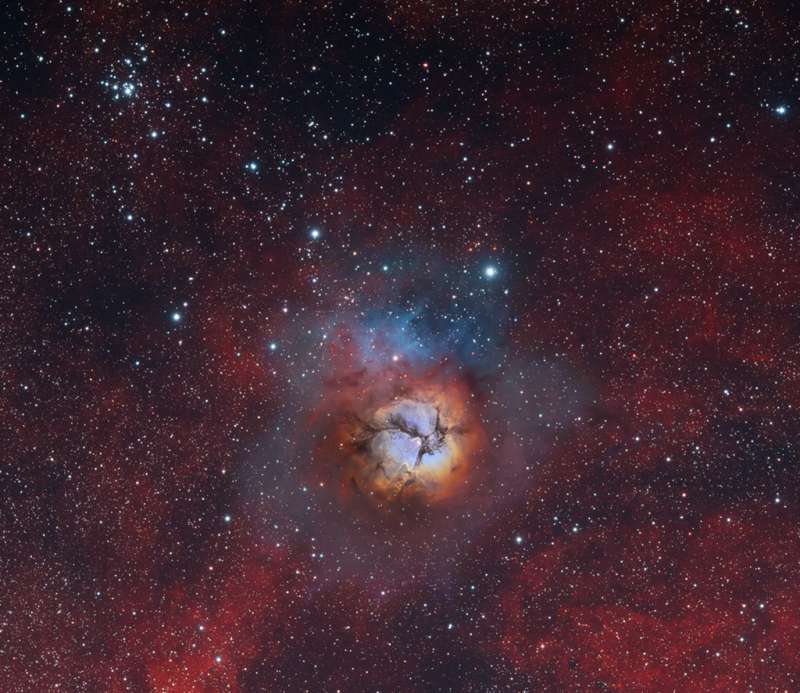Credit & Copyright: Martin Pugh
Explanation:
The beautiful Trifid Nebula,
also known as Messier 20, lies about 5,000 light-years away, a
colorful study in cosmic contrasts.
It shares this nearly 1 degree wide field with
open star cluster
Messier 21
(top left).
Trisected by dust lanes
the Trifid itself is about 40 light-years across and
a mere 300,000 years old.
That makes it one of the
youngest star
forming regions in our sky, with newborn and embryonic stars embedded
in its
natal dust and gas clouds.
Estimates of the distance to open star cluster M21 are similar to M20's,
but though they share this gorgeous telescopic skyscape
there is no apparent connection between the two.
M21's stars are much older, about 8 million
years
old.
M20 and M21 are easy
to
find with even a small telescope in the nebula rich constellation
Sagittarius.
In fact, this well-composed scene is a
composite from two different telescopes.
Using narrowband data it blends a high resolution image of M20 with a
wider field image extending to M21.
1999 2000 2001 2002 2003 2004 2005 2006 2007 2008 2009 2010 2011 2012 2013 2014 2015 2016 2017 2018 2019 2020 2021 2022 2023 2024 2025 |
Январь Февраль Март Апрель Май Июнь Июль Август Сентябрь Октябрь Ноябрь Декабрь |
NASA Web Site Statements, Warnings, and Disclaimers
NASA Official: Jay Norris. Specific rights apply.
A service of: LHEA at NASA / GSFC
& Michigan Tech. U.
|
Публикации с ключевыми словами:
M 20 - emission nebula - open cluster - эмиссионная туманность - Рассеянное скопление
Публикации со словами: M 20 - emission nebula - open cluster - эмиссионная туманность - Рассеянное скопление | |
См. также:
Все публикации на ту же тему >> | |
